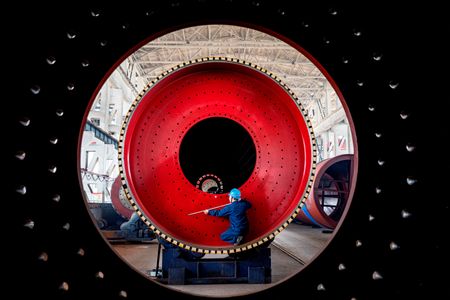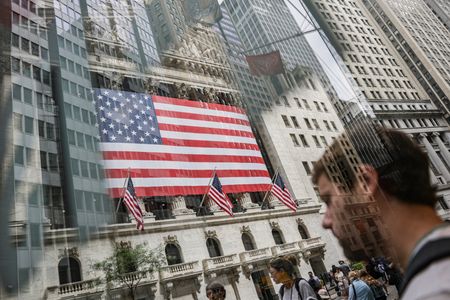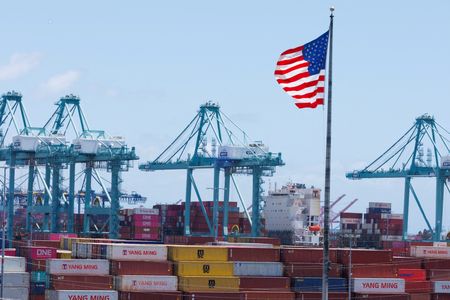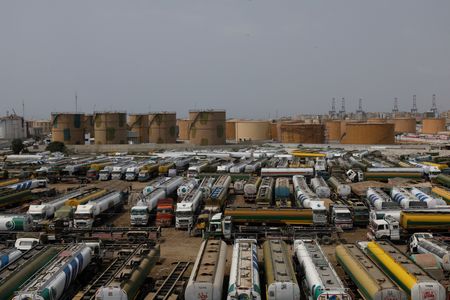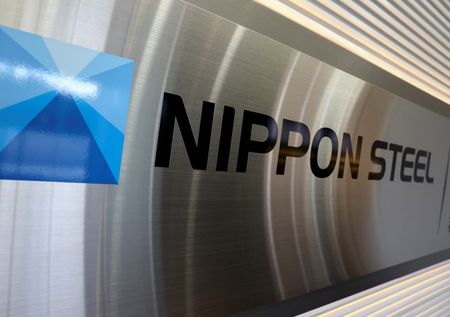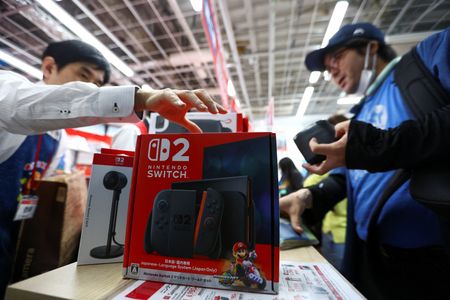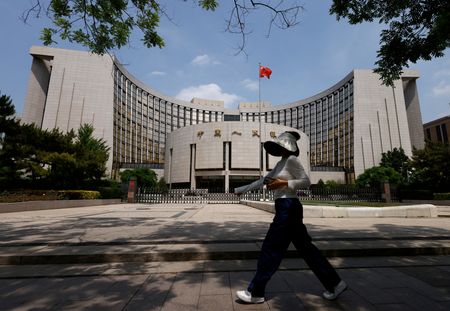By Leika Kihara
TOKYO (Reuters) -Asia’s factory activity deteriorated in July as soft global demand and lingering uncertainty over U.S. tariffs weighed on business morale, private sector surveys showed on Friday, clouding the outlook for the region’s fragile recovery.
The surveys were taken before Japan and South Korea clinched trade deals with Washington, offering some hope that receding uncertainty could prop up manufacturing activity in coming months, some analysts say.
Factory activity shrank in export power-houses Japan and South Korea, surveys for July showed, underscoring the challenge Asia faces as President Donald Trump’s policies threaten the global free trade system the region relied upon for growth.
China’s factory activity also deteriorated in July as softening business growth led manufacturers to scale back production, boding ill for the region’s economy.
The S&P Global China General Manufacturing PMI fell to 49.5 in July from 50.4 in June, undershooting analysts’ expectations of 50.4 in a Reuters poll and dropping below the 50 threshold that separates growth from contraction.
The reading comes a day after an official survey showed China’s manufacturing activity shrank for a fourth straight month in July, suggesting a surge in exports ahead of higher U.S. tariffs has started to fade while domestic demand remained sluggish.
The survey “provides further evidence that China’s economy lost some momentum last month, largely due to domestic weakness,” said Zichun Huang, an economist at Capital Economics.
The S&P Global Japan manufacturing purchasing managers’ index (PMI) also fell to 48.9 in July from 50.1 in June, a sign U.S. tariffs were hurting the world’s fourth-largest economy.
Most of the survey data was collected before the announcement of a Japan-U.S. trade agreement last month, which lowers tariffs imposed on Japan to 15% from a previously threatened 25%.
As the trade deal with Washington kicks in, “it will be important to see if this will translate into greater client confidence and improved sales in the months ahead,” said Annabel Fiddes, economics associate director at S&P Global Market Intelligence, which compiles the survey.
South Korea also saw factory activity contract in July for the sixth straight month with the S&P Global PMI falling to 48.0 in July, from 48.7 in June.
“Both production volumes and new orders fell at a steeper rate than that in June, with anecdotal evidence indicating that weakness in the domestic economy was compounded by the impacts of U.S. tariff policy,” said Usamah Bhatti, economist at S&P Global Market Intelligence.
The survey was conducted from July 10 to July 23, before South Korea reached on Wednesday a trade deal with the U.S. lowering tariffs to 15% from a threatened 25%.
An outlier was India, which saw manufacturing activity expand at the fastest pace in 16 months in July on robust demand, its PMI showed.
But business confidence fell to a three-year low amid competitive pressures and inflation concerns, with a lack of progress in striking a trade deal with the U.S. adding to the gloom.
Factory activity in July expanded in the Philippines and Vietnam, but shrank in Taiwan, Indonesia and Malaysia, PMIs showed.
(Reporting by Leika Kihara; Editing by Sam Holmes)

